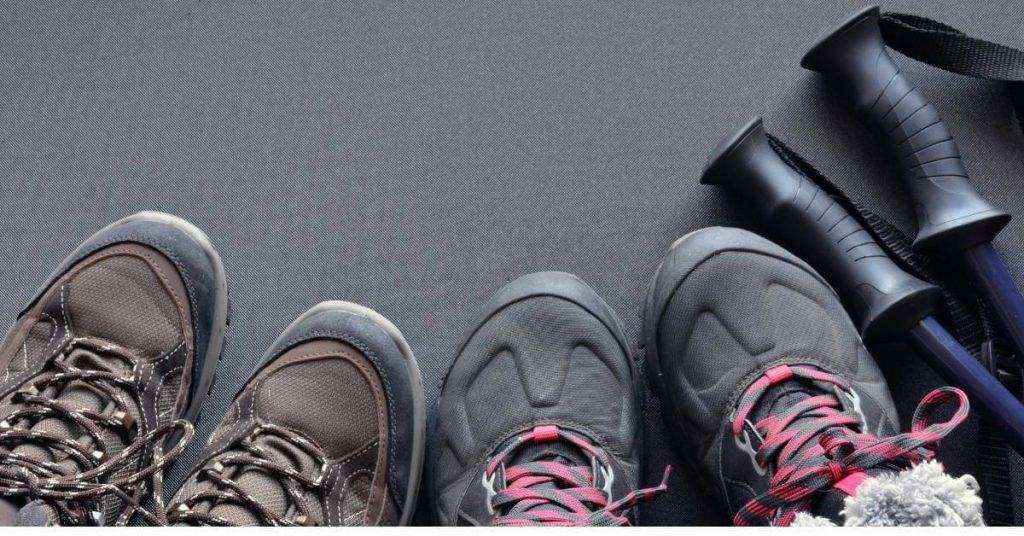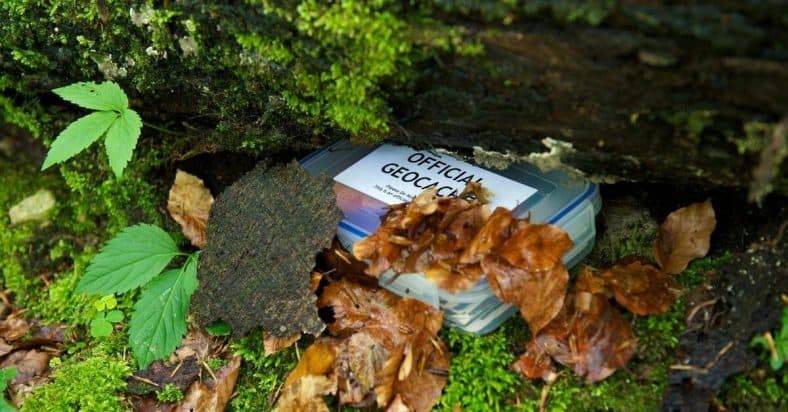Are you new to geocaching? Wondering if it’s safe? Have you heard stories about people getting hurt or arrested? For the most part, geocaching is safe and you won’t run into any trouble if you follow a few basic rules. But there are some important safety considerations you should be aware of before you go out on a treasure hunt.
Geocaching became an instant craze when it launched in 2000, and it never seemed to lose that momentum. Today, more than 3 million geocaching accounts have been created, and it seems like every day some new cache is being hidden somewhere in the world. That means more people are out there, wandering through the woods, parking lots, and other public spaces, looking for these containers and logging their “finds” online.
The question that a lot of people are asking, though, is geocaching safe? Before we answer this question, however, let’s take a look at some of the basics.
What is geocaching?
Geocaching is an outdoor activity that involves finding caches in secret locations by using some GPS coordinates and your sleuthing skills. To find the hidden cache, you need to have a GPS-enabled device that will lead you to the general vicinity of the cache. Getting to the location of the container is,however, only half of the task as you will now need to use your observation and sleuthing skills.
You may need to solve a series of clues or perhaps get on your hands and knees and search in the undergrowth in order to find the cache. Once you’re successful in finding it then you can sign the logbook that’s kept within the container and log your find online. And if you’re anything like me, (a bit of a poser!) you’ll take a photograph of yourself and the hidden container as a memento.

Where can I find geocaches?
Geocaches are hidden all over the country, in fact, they are hidden all over the world. They can be found in parks, open areas, within urban settings, and even within water fountains! The imagination of the person who hid the cache can at times seem to be way out there! There are a variety of sites on the internet where you can search for caches, however, the best is undoubtedly the original site – geocaching.com
Safety first
Geocaching is subject to many of the same dangers as any other outdoor activity. There is always an element of risk no matter what we do. In fact, even getting up in the morning to brush our teeth carries an element of risk. You could, after all, slip and fall on the bathroom floor.
No matter what you’re doing there’s a certain amount of risk involved; however, this does not mean that we should be afraid to do anything. In most cases, the benefits of our activity will far outweigh the risks. And in our opinion geocaching is exactly that type of activity – great outdoor fun if done safely and correctly.
What then, are the main things you should look out for in order to keep safe whilst geocaching?
Geocaching Safety Tips
1. Weather
If you’re in the outdoors you need to keep an eye out for the weather. We’ve all been there where the weather has unexpectedly taken a turn for the worse. In most instances, this may mean you get soaking wet, but it could be perilous if you’re in a mountainous region.
I remember going treasure hunting near the Italian lakes and being caught out of the blue by a thunderstorm. There was torrential rain, plenty of scary lightning forks, and some flooding due to fast-rising water levels in the streams. It was very frightening as we were at least 10 km away from the nearest town. In the end, we managed to take some shelter under an old stone bridge and sat out the storm. Believe it or not, this took around 3 hours and boy were we happy to have some snacks and a flask of coffee in our backpacks.
2. Clothing & Footwear
Make sure you wear appropriate clothing while geocaching. This includes not only wet gear to protect you from the elements, but also the correct footwear. Being a geocacher involves a fair bit of walking and you’ll need to have something comfortable for your feet.
My recommendation is to wear your hiking boots as they’ll provide you with better underfoot grips, therefore, making it less likely for you to slip and fall. They’ll also provide some additional comfort and at least some level of waterproofing. After all, nobody in their right mind wants wet feet and blisters!

If, like me, you live in an area where you are pretty likely to encounter ticks then dress appropriately. Wear long sleeves and trousers (not shorts) if you’re going into woodlands or fields and bring a good insect repellant. Those ticks can transmit some pretty nasty diseases if they latch onto your skin to feed.
Appropriate footwear is a must!
3. Traffic
Geocaching in an urban setting can bring some very different hazards than you would in a state park. You’ll certainly need to have your wits about you. Keep an eye out for traffic, not only cars but also cyclists and other pedestrians too. You’ll probably be walking around with your nose stuck into your GPS trying to find the right direction to the treasure boxes. If that is the case, then make sure you raise your head from the display as often as possible.
4. Cache Difficulty
Review the difficulty rating of the cache before you set out. The higher the rating then the more difficult it will be to find it. A rating of 5 may require you to have certain equipment in order to reach the container. It may even require some specialist climbing gear or require you to search in wet marshy areas.
If you have kids with you, then it’s probably best to avoid the more difficult caches. I would also recommend avoiding them if you’re planning on geocaching on your own. After all, there is a slightly higher chance of something (potentially) going wrong with the super difficult and perhaps more isolated caches.
5. Keep in Contact
This leads us nicely onto our next tip for staying safe while geocaching. Make sure you let people know your plans, particularly if you’re heading out into a remote area. Let people know where you are going and bring your mobile phone.
This way, at least if something does happen then at least people will know your general area. Having the phone will also enable you to contact the emergency services should the worst happen. It’s also a good idea to bring a powerbank, some extra batteries or a solar battery charger with you in your backpack.
6. Horrible holes
It’s a fact that finding caches can involve you having to put your hands in places that you wouldn’t normally put them. The containers may be hidden within pipes, inside tree stumps or under rocks, etc. Either way, it’s something that you might not enjoy so much, particularly as many of these crevices can be dark, wet, and often pretty slimy. Hopefully the cache owner has placed the logbook within a solid waterproof container. Depending on where in the world you live, please be super careful that there are no hidden nasty insects or animals hidden in that tree stump before you go rooting!
My recommendation is to bring some disposable latex-free gloves with you. They are light and waterproof and will still allow you to feel your way around those dark horrible holes! Oh, and best of all they’ll keep your hands clean.
7. Muggles
Urban areas will also be busier and therefore you will need to be especially careful of muggles in the vicinity! In case, you might not know, the term ‘muggles’ has been adopted from the Harry Potter series of books. In the books, a muggle was a person who had no magical abilities. Similarly, in the geocaching sense, a muggle is a person who doesn’t geocache.
There is always a danger that a muggle may see you find a cache. Their curiosity may then lead them to tamper with the container. Ok, this isn’t strictly a safety issue but a geocache that’s been tampered with will prevent somebody else from locating it in the future.
Essential Items
Before you go geocaching, it is important to know what to take. This will ensure that you will get more enjoyment out of your day, but also most importantly will help keep you safer.
Check out our geocaching backpack essentials here.
Is geocaching safe?
Ok, so let’s recap some of our recommendations that will help keep you safe whenever you’re out and about geocaching. If you’re out in nature, you have to be mindful of your surroundings. The minute you lose your awareness of what’s going on around you is the minute a bear could attack you or the minute a snake could bite you (clearly this depends upon where you are hiking!)
Always carry a gps enabled device so you can get home safely. Don’t start the day hiking or canoeing without an appropriate way of leaving a map or trail of where you’ve been. If you’re camping, pick a place on the map to leave your tent so you know exactly where you are. Be aware of your speed while driving and always pull over when you’re driving alone. Stay on marked trails whenever possible. Leave an itinerary so your family or friends know what you’re up to. Do not get in the water unless you can swim. If you’re swimming, wear shoes and stay on the trail, avoid the water.
Have fun!
Most people who have found a geocache and even those who haven’t, enjoy the time they spend searching for the geocache. Some find it relaxing and meditative, while others find it to be a great way to meet other people. I bring the kids with me on most of my geocaching adventures and thankfully they have also become avid searchers!
As long as you have fun and are safe, what else is there to ask for?
Conclusion
With all that said, is geocaching safe? It’s probably as safe as any other outdoor adventure on the trail. By being prepared, being aware of your surroundings, using your common sense, and not taking any needless risks you can enjoy some great geocaching adventures. The danger level is no more than if you were going outdoors hiking for the day. There are millions of geocachers out there and the vast majority of them have a great and safe time geocaching and looking for some hidden treasure.
Stay safe and enjoy your next geocaching adventure!



